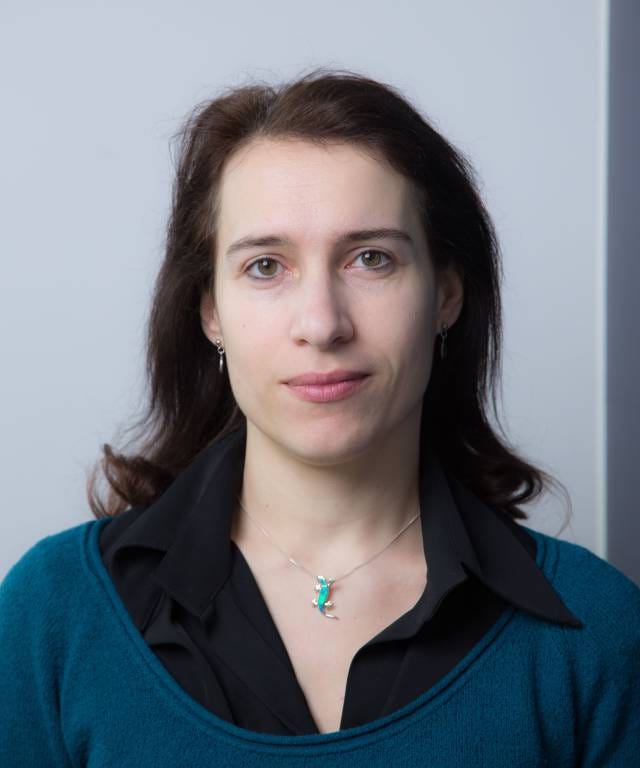Sabina Leonelli is a philosopher of science and technology renowned for pioneering work in the philosophy of data and open science. As a professor at the Technical University of Munich (TUM), she directs the Ethical Data Initiative and leads the PHIL_OS project, which develops empirically grounded frameworks for open science in under-resourced research environments. Her interdisciplinary approach bridges high theory with participatory, on-the-ground research—exemplified by her ethnographic collaborations with biologists and data scientists.
Summary: In this episode of Love & Philosophy, host Fotis engages in a deep and wide-ranging conversation with Sabina Leonelli. They explore the intersections between philosophy, science, and society, discussing topics like complementary science, the role of qualitative and quantitative methods in research, the challenges of interdisciplinary work, and the ethical implications of AI and data-driven technologies.
Sabina urges us to not fear inconvenience—embracing complexity and discomfort in intellectual and social pursuits. The conversation also touches on the necessity of love, vulnerability, and collective agency in navigating the modern world, offering profound insights into how we can rethink knowledge production, technology, and politics.
The beauty is exploring what is 'maximally inconvenient' and seeing problems as keys to care.

Timestamps:
[00:00:00] Highlights
[00:04:00] Introduction to Sabina, her Background and the conversation (by Fotis)
[00:10:41] Interview Begins: Framing Sabina's Work
[00:11:13] Sabina's Intellectual Journey
[00:14:17] Fascination with Boundary-Disrespecting Thinkers
[00:16:20] Early Influences & Education
[00:19:21] Challenges of Interdisciplinary Work
[00:20:39] Mentors & Inspirations
[00:23:54] The Approach of Complementary Science
[00:28:37] Collaborating with Scientists as a Philosopher
[00:32:26] Philosophy of Data
[00:36:00] Questions Left Out of Biology
[00:37:40] Coming to terms with Social Epistemology
[00:40:05] Choices & Assumptions in Scientific Research
[00:40:05] Willingness to Engage with the Social Nature of Science
[00:44:05] Willingness to Use Different Methods
[00:48:05] Acknowledging the Role of Quantification
[00:50:27] Knowledge Hierarchies
[00:55:00] Mixed Methods for Global Issues
[00:57:00] Limits of AI: The Case of Medical Expertise
[00:58:52] AI as Complement to Expert Knowledge
[01:02:01] Cultural Obsession with Control & Convenience
[01:03:45] Social Media & Digital Divide
[01:07:20] Regaining Agency Through Politics
[01:12:30] Collective Action & Social Relationships
[01:15:00] The Need for Political Engagement
[01:17:20] Contemporary Disillusionment with Politics
[01:19:40] Love as a Teacher
[01:22:20] Vulnerability & Human Experience
[01:25:50] Caring as a Leverage for Engagement
[01:26:22] Closing Thoughts
This episode is a must-listen for anyone interested in the intersections of philosophy, science, and society, and how we can navigate complexity with both intellectual rigor and emotional openness.

An idea from this episode:
Love is ‘maximally inconvenient’ and thus maximally everywhere.
Resources:
PHIL_OS Project – A Philosophy of Open Science for Diverse Research Environments
Ethical Data Initiative (EDI) at TUM
Philosophy of Open Science (Book, Open Access)
Data Shadows (Art-Science Film Collaboration)
Data-Centric Biology: A Philosophical Study
Referenced Episodes:
Evan Thompson, How to Overcome The Blind Spot
✭ This episode is hosted by Fotis Tsiroukis.
QBD Summary
Sabina Leonelli: Science, Technology, and the Human Experience
Sabina Leonelli is a philosopher of science and technology and with Fotis (who is a PhD student in her lab at the moment), this conversation explores the profound intersections between philosophical inquiry, scientific exploration, and the lived human experience. Sabina & Fotis delve into how individuals and societies can navigate the complexities of modern technology, communication, and knowledge creation while fostering genuine engagement with the world around us. They travel paths through many landscapes of technology, data, biology, and philosophy, all the while keeping it connected to everyday life.
💫 Some Highlights from the Conversation
Sabina Leonelli's insights reveal a profound dedication to bridging the gap between the humanities and sciences. Her perspective challenges the traditional boundaries within academia, posing a critical question: Why do disciplinary boundaries matter when the ultimate goal is to understand and improve our world?
Leonelli's approach to interdisciplinary study is not only refreshing but essential, considering the multifaceted problems society faces today. She emphasizes the importance of complementary science, where the convergence of diverse fields leads to enriched understanding and innovation.
📚 Science as a Human Endeavor
Leonelli argues that science, at its core, is a deeply human enterprise, affected by social contexts and individual choices. She cautions against the tendencies to regard science as merely empirical or objective, encouraging a broader understanding that includes the social and ethical dimensions of scientific practices.
Her collaboration with scientists, particularly in biology and data science, exemplifies the potential of interdisciplinary work. By exploring how and why researchers choose specific models or organisms, Leonelli sheds light on the subjective components of scientific inquiry that often go unacknowledged. Subjective and objective are not words that discuss either/or situations but rather calls to be better acknowledged and noticed in each situation.
🤖 Recognizing the Dangers of Control & Convenience in Technology
A critical theme in the discussion is the dual threat posed by the modern quest for control and convenience. Leonelli critiques the pervasive desire for absolute control over our environments, a pursuit she views as ultimately unattainable and potentially destructive. Equally concerning is the allure of effortless convenience, where technological advancements promise to simplify life but risk diminishing genuine engagement with the world.
According to Leonelli, these dynamics demand careful scrutiny. As technology continues to evolve, she urges us to consider its implications on autonomy and the richness of human experience.
🦉 Reclaiming Agency with Collective Action
Amidst the challenges posed by technology's rapid advancement, Leonelli emphasizes the importance of collective agency and political engagement. She advocates for a revival of political spaces as arenas for meaningful change, urging individuals to join forces in addressing systemic issues.
Leonelli's call to action is situation specific but with Fotis we seem to get the following idea: We can rekindle motivation through collective movements and political participation. By channeling intellectual and social resources into active engagement, society can begin to steer technological development in directions that genuinely serve humanity's diverse needs. Not the needs we’re told we have or that we are told we should have but the ones we have noticed and understood as ourselves.
❤️ Love as a Guiding Principle
By the end Fotis and Sabina spark through a rather exciting discussion of love as being woven through it all and thus often just inconvenient, especially romantic love. Leonelli suggests that love, in its many forms, can be a powerful lens through which to navigate and notice further complexity. Love demands vulnerability, trust, and an embrace of frustrations and unpredictability. By recognizing and valuing these experiences, individuals can better appreciate the interconnectedness of personal and intellectual growth. And just face the frustration and time wasted, until it isn’t.
By acknowledging the limitations and potentials inherent in our approaches, we can cultivate a more thoughtful relationship with the world—a relationship that respects the intricate dance between control, convenience, and authentic human engagement.













Share this post